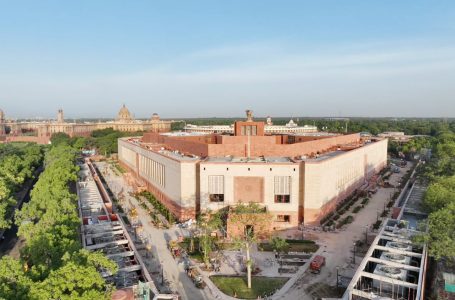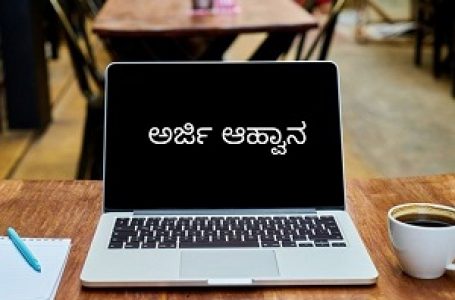Department of Fisheries organizes webinar on Promotion of Inland Saline Water Aquaculture

New Delhi, Nov 06, 2021: Department of Fisheries, Ministry of Fisheries, Animal Husbandry and Dairying, Government of India organized a webinar on “Promotion of Inland Saline Water Aquaculture” on Nov 5.
This was the eighth webinar in the series being part of celebrating “Azadi ka Amrit Mahotsav”. The event was presided over by Jatindra Nath Swain, Secretary, Department of Fisheries (DoF), Government of India (GoI) and attended by more than 100 participants including DoF officials of GoI and States/UTs, scientists from ICAR fisheries institutes and faculty of state agriculture, veterinary and fisheries universities, entrepreneurs, fish farmers, hatchery owners, and other stakeholders from aquaculture industry.
In his inaugural address, Union Secretary Fisheries, Swain discussed the development of the fisheries sector and sustainable harnessing of fisheries resources available in the country.
He highlighted the importance of aquaculture in saline affected soils with low productivity while informing about the components supported under Pradhan Mantri Matsya Sampada Yojana (PMMSY) for promotion of aquaculture in saline/alkaline areas and converting ‘waste land into wealth land’, with the help of technology infusion, training and capacity building of farmers, provision of market linkages, availability of quality seed and feed and good aquaculture practices.
He also informed about the other initiatives taken by the Government for promotion of fisheries and aquaculture under PMMSY for the benefit of fishers and fish farmers and role of fisheries sector in employment generation as well as food and nutritional security.
Sagar Mehra, Joint Secretary (Inland Fisheries), in his opening remarks, highlighted the present status and potential of aquaculture in saline waters available in the northern States of Haryana, Panjab, Rajasthan and Uttar Pradesh.
He mentioned that PMMSY has envisaged an investment target of Rs. 526 Crore during 2020-21 to 2024-25 for development of saline water aquaculture while generating 3 lakh employment opportunities. He also elaborated the importance of cluster development models in these states for providing one stop solution with development of facilities like testing laboratory network, feed plants, cold chain and marketing infrastructure to reduce production cost accompanied by promoting adoption of technologies like RAS, biofloc etc.
He also highlighted the importance of species diversification, disposal of waste saline water, trained manpower for shrimp culture for sustainable inland saline water aquaculture.
Dr. J. Balaji, Joint Secretary (marine Fisheries), setting the context for the webinar, briefly highlighted the challenges at hand in the development of inland saline water aquaculture. He mentioned about the importance of quality seed, entrepreneurship model, organic shrimp aquaculture and zonation with all the requisite support infrastructure for sustainable development of saline aquaculture in these four northern States. He also underlined the importance of entrepreneurship and private investment in the development of aquaculture sector including saline water inland aquaculture.
During the technical session, Jose Antony, Scientist, NGRC, Gujarat of ICAR-CIBA made a comprehensive presentation on ‘Promotion on Inland Saline Water Aquaculture’ and emphasized on status, issues and future of Inland Saline Water Aquaculture in the fisheries sector while discussing the current status Inland shrimp farming and issues such as site selection, lack of laboratory & technology support, lack of buyers on demand, domestic market, environmental and social sustainability, thrust and opportunities, role of shrimp culture as a tool for fighting malnutrition and increasing nutritional security across the nation.
Following the technical presentation, an open discussion was held with the fish farmers, entrepreneurs, hatchery owners, scientists, and faculty of universities. After discussion, the webinar concluded with a vote of thanks proposed by Dr. S. K. Dwivedi, Assistant Commissioner, DoF.





